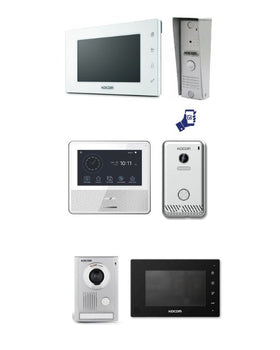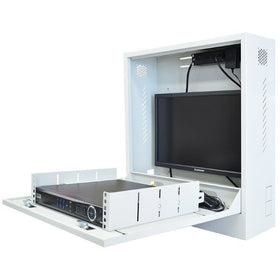
Top factors to consider when installing security cameras in your home
When installing security cameras in your home, there are several important factors to consider to ensure you make the most effective and appropriate choices. Here are some top factors to keep in mind:
-
Purpose and Coverage: Determine the purpose of your security cameras and the areas you want to cover. Identify high-risk areas such as entrances, windows, and valuable assets that require monitoring. This will help you determine the number and placement of cameras needed.
-
Camera Type: Choose the right camera type based on your requirements. Common options include dome cameras, bullet cameras, and PTZ (pan-tilt-zoom) cameras. Consider factors like indoor/outdoor use, visibility, and the desired field of view.
-
Resolution and Image Quality: Higher resolution cameras provide clearer and more detailed images. Consider cameras with at least 1080p resolution for better identification and recognition of faces or objects.
-
Night Vision: If you need surveillance during nighttime or low-light conditions, select cameras with infrared (IR) capabilities for good quality night vision.
-
Connectivity and Storage: Decide whether you prefer wired or wireless cameras. Wired cameras offer a more stable connection, while wireless cameras provide more flexibility in terms of placement. Additionally, consider the storage options for recorded footage, such as on-site DVRs/NVRs or cloud-based solutions.
-
Motion Detection and Alerts: Look for cameras with motion detection capabilities to minimize false recordings. These cameras can send notifications or trigger alarms when motion is detected, allowing you to respond promptly to potential threats.
-
Remote Access: Consider cameras that offer remote access capabilities, allowing you to view live feeds and recorded footage from your smartphone, tablet, or computer. This feature enables you to monitor your home while away and provides greater convenience.
-
Privacy and Compliance: Ensure you are aware of and adhere to privacy laws and regulations regarding the use of security cameras in your area. Respect the privacy of individuals who may be recorded and avoid pointing cameras towards private areas.
-
Installation and Maintenance: Evaluate whether you can install the cameras yourself or if professional installation is required. CTC Communications offers professional installation of security cameras. Additionally, consider maintenance needs, such as cleaning lenses and checking connections regularly.
-
Budget: Set a budget for your security camera system. Balance your requirements with available options to find the best cameras that fit within your budget.
Remember to carefully research and compare different camera models and brands, read customer reviews, and consult with security professionals, such as CTC Communications if needed to make informed decisions when installing security cameras in your home.



